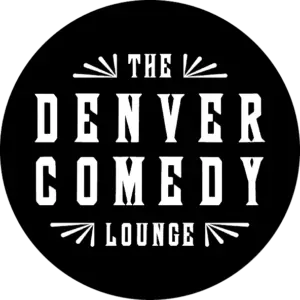The Zen of Stand-Up Comedy: A 20-Year Veteran’s Perspective

The Zen of Stand-Up Comedy: A 20-Year Veteran’s Perspective Stand-up comedy is often seen as a battle of wits, a dance between the performer and the audience. It’s an art form that requires quick thinking, sharp timing, and the ability to connect with a room full of strangers. But after 20 years in the game, performing on stages like Comedy Central, Jimmy Kimmel Live, and Seth Meyers, I’ve come to realize that stand-up isn’t just about making people laugh. It’s about being fully present in the moment, going with the flow, and embracing the unknown — principles that closely align with the practice of Zen. Zen, at its core, is about mindfulness and presence. It’s the practice of being fully aware of each moment, accepting it without judgment, and letting go of attachment to outcomes. In Zen, there’s no room for ego or fear; there’s only the present moment, and how you respond to it. This mindset fosters a sense of peace and clarity, allowing practitioners to flow through life with a calm and open heart. While Zen and comedy might seem like an odd pair at first glance, the two share more in common than you might think. When I first started out, I thought I was destined to be a stand-up comedian. I imagined a life on the road, performing night after night, constantly honing my craft. But as I allowed myself to go with the flow, I found that my path shifted. I didn’t just become a stand-up comedian — I became the owner of a comedy club, a coach to aspiring comedians, and a mentor to those looking to grow their practice. This journey wasn’t planned, but it was exactly what I needed. By embracing the Zen principle of going with the flow, I found a deeper connection to my work and a new way to contribute to the comedy world. In my coaching, I’ve noticed that the way I help people write jokes is strikingly similar to Zen practice. I don’t just give them punchlines or tell them what’s funny — I listen. I listen deeply to their stories, their fears, their joys, and their perspectives. By being fully present with them, I can help them find the humor that’s already there, waiting to be uncovered. It’s a process of discovery, not creation, much like how Zen teaches us to uncover our true nature rather than trying to create a new self. Ultimately, both Zen and stand-up comedy teach us the same thing: to be present, to be ourselves, and to trust the process. Whether I’m on stage, coaching a new comic, or simply running my club, I’ve found that the key to success in comedy — and in life — is to stay in the moment, embrace the uncertainty, and flow with whatever comes my way. And in that way, comedy has become not just a career, but a path to personal enlightenment.
Laughter in the Time of Chaos: Why We Need Stand-Up Comedy Now More Than Ever

Laughter in the Time of Chaos: Why We Need Stand-Up Comedy Now More Than Ever Let’s face it, the world can feel pretty heavy these days. I opt for heavy cuz Shitty doesn’t always cut it. From news overload to social anxieties, a good laugh can feel like a rare gem. But stand-up comedy isn’t just about forgetting your troubles for an hour (although that’s a pretty awesome benefit too). Stand-up, and laughter in general, serves a crucial purpose, especially in our current climate, both environmental and political. Laughter is the Best Medicine (Literally): Studies show laughter offers a range of physical benefits. A good chuckle can reduce stress hormones, lower blood pressure, and even boost your immune system. It’s a workout for your core muscles and can leave you feeling energized. Comedy as Therapy (Without the Copay): Stand-up can be a powerful tool for processing difficult emotions. Comedians often tackle sensitive subjects, using humor to shed light on shared experiences and anxieties. Laughter can act as a release valve, helping us cope with stress and find some perspective. It’s also the funnest thing I’ve ever done in my life. I started comedy 20 plus years ago and now am lucky enough to run Denver Comedy Lounge, giving up and coming comedians a chance to find their funny and make some money. The Creative Outlet We All Need: We all crave ways to express ourselves creatively. Stand-up provides a platform for people to share their unique perspectives and observations. To take what happened that day, good or bad, and make some gosh-darn lemonade. Whether you’re delivering jokes or simply enjoying the show, stand-up fosters a sense of community and connection. There is truly nothing like live stand up. I’ve seen both sides of the business as well as a being a life-long comedy fan. The ups and downs and ins and outs are what it’s about. A true rollercoaster experience. You Don’t Have to Be a Clown to Be Funny: The beauty of stand-up is that humor comes in all shapes and sizes. There’s room for self-deprecating wit, observational humor, and even the occasional groan-worthy pun — my personal favorite:) The key is authenticity. The best stand-up comes from a genuine place, a willingness to share your unique take on the world. Comedy is truth, even if it is composed of multiple lies. So next time you’re feeling overwhelmed, consider seeking out a stand-up show or even a comedy class to get the juices flowing. You might be surprised by the laughter you find, the stress you release, and the sense of connection you experience. And who knows, maybe you’ll even discover a hidden funny bone within yourself!
Stumbling Into Standup

Stumbling Into Stand-Up I never thought I would write a book. I never wanted to own a comedy club. I never would have guessed I would be on TV. I never imagined I would be a stand-up comedian. I never… yet, I did all of those things. How could this be? I seem to have stumbled into everything I’ve done and am doing. I’m creatively clumsy. I went with the flow. I never had a plan. It’s not how it works for everyone, but for me, the “one thing leads to another” approach has been key. If you start walking, even without a destination in mind, you will eventually arrive somewhere, and then you adjust to the situation. You ask yourself, “Am I where I want to be?” or “Should I try something else?” And proceed accordingly. I suppose much of life is handled this way — constantly evaluating and adjusting. Perhaps this approach is what has brought you here, to a book about doing stand-up comedy. Maybe you’re a Lawyer who thinks “I could do this”, or somebody that grew up with parents dissuading you from fancy and frivolous fantasies and this is a “Fuck You”. And maybe you’re just at a crossroads of curiosity. Just because you buy the cookbook doesn’t mean you’ll actually make any of the recipes, but you want to cook more and be better at it, so you start with the easier recipes. Every comedian’s story could be described as “the journey of the ego.” The ecosystem of comedy, or as I like to call it: “ego system.” Once you get the sweet taste of an audience laughing and clapping and saying “you were great” you will think that you have discovered something specific to you. You will want to be the funniest on any show, and if someone bombs you will feel bad, but also grateful that it wasn’t you. There is a lot of selfishness inherent to the experience of performing stand-up. There are innumerable opinions about what a stand-up comic should be, aspire to, and how they should grow. Some people believe that if there is no growth in a comedian’s abilities, material, or performance, they should quit comedy. I argue that every level of comedian, as well as every caliber of comedy show — from an open mic in a coffee shop to a big sold-out theater, the crusher and the bomber, is integral and necessary. Just as a forest is composed of insects, majestic trees, and dead leaves, so too must an entertainment ecosystem contain similar elements. These elements are necessary for self-reflection and personal growth. The simple math is the more you do something, the better you will get at it no matter what it is, but comedy isn’t simple math. It is politics, philosophy, sociology, history, language, art, performance and most of all, ego.
